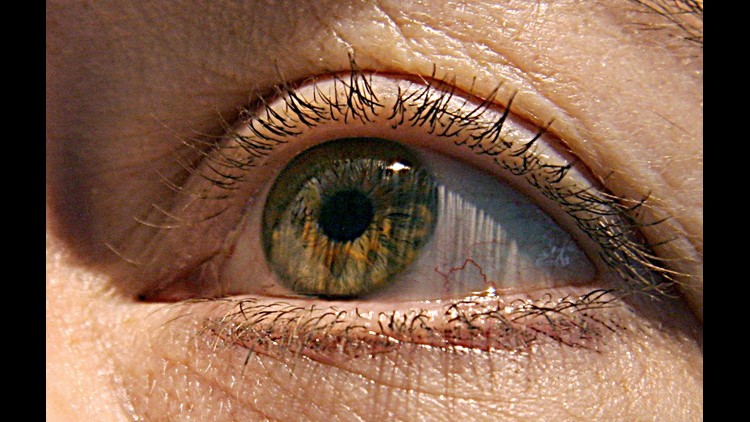Just months after the US Food and Drug Administration announced efforts to crack down on stem cell clinics touting unapproved therapies, the agency now plans to help expedite the development of stem cell therapies proved to be safe and effective.
Dr. Scott Gottlieb, the FDA commissioner, and Dr. Peter Marks, director of the FDA’s Center for Biologics Evaluation and Research, co-authored a new paper detailing the delicate balance between safety and innovation when it comes to the possibilities of using stem cells in medicine.
“Our aim is to refashion our traditional tools for regulation to meet the challenges and opportunities presented by such highly innovative products as cell-based regenerative medicine,” they wrote in the paper, published Thursday in the New England Journal of Medicine.
Stem cells have the potential to develop into many cell types in the body. Some studies suggest that stem cells may help the nearly blind to see and could reverse signs of aging. Research has even explored using stem cells to create red blood cells to replenish blood shortages during emergencies.
“However, despite the increasingly widespread use of stem cells in techniques being labeled as regenerative medicine, clinical benefit has not been clearly shown in most instances,” Gottlieb and Marks wrote.
The FDA hopes to change that, while continuing efforts to regulate the industry.
‘A sweet spot of stem cell oversight’
“This more reflects an update from the FDA on where their thinking stands on stem cells. I don’t see it as backing down from the hoped-for stepping up of FDA oversight of clinics,” said Paul Knoepfler, professor of cell biology and human anatomy at the University of California, Davis School of Medicine, who wrote a blog post about the new paper.
“The FDA seems to be saying they want to find a sweet spot of stem cell oversight where they encourage innovation by good citizens and yet also carefully regulate this sphere as well as encouraging those interested in transplanting stem cells into patients to work with the FDA,” he said.
Knoepfler co-authored a paper, published in the journal Cell Stem Cell in 2016, that found unapproved stem cell interventions being marketed at 570 clinics across the US. “Hot spot” cities where there were clusters of clinics included Beverly Hills, California; New York; San Antonio; Los Angeles; Austin, Texas; Scottsdale, Arizona, and Phoenix.
Although Gottlieb and Marks didn’t mention clinics in their paper, they noted that facilitating the availability of safe and effective therapies was part of the FDA’s oversight of regenerative medicine products, including new stem cell therapies.
The FDA will provide tools to encourage individual or small groups of physicians to collaborate in support of the development of a stem cell or other regenerative medicine product, they wrote.
Gottlieb and Marks also said the FDA is encouraging investigators who are involved in such innovative product development to engage in dialogue with the agency early on in the research process.
“It feels like the FDA leadership is in essence telling them, ‘Do the right thing, and we’ll help you with a trial, even if you aren’t a big university or company,’ ” Knoepfler said. “It’s reassuring to see though that the FDA still emphasizes it is crucial to have data and follow the rules.”
The FDA held a Grand Rounds webcast on Thursday detailing how its scientists are examining strategies and methods to predict the reliability of how certain cell-based therapies will perform in humans.
The ability to make such predictions could be a big step toward getting safe and effective FDA-approved treatments to patients in the future.
Predicting the future
For many investigational stem cell-based products, it remains unclear whether the measurements currently used to characterize products will predict their clinical effectiveness, according to the FDA.
As of now, stem cell-based products submitted to the FDA in clinical trial proposals are characterized using a small number of cell surface markers and simple measures of cell product activity — but is that enough to truly predict clinical outcomes?
Answering that question has become one of many focuses of the FDA’s Multipotent Stromal Cell Consortium, a large team of scientists studying adult multipotent stromal cells. These are stem cells that can differentiate into a variety of cell types and could contribute to tissue repair or help replace, restore or regenerate other parts of the body.
Steven Bauer, chief of the cellular and tissues therapy branch in the Center for Biologics Evaluation and Research, gave the keynote presentation at Thursday’s Grand Rounds and focused on how, when multipotent stromal cells are studied for use as therapies, predictability is key.
“We can use some of this information to help generate standards in this field,” he said. “There is a tremendous amount of interest now in developing standards that will facilitate the development of regenerative medicine and products.”
All in all, “combined with the publication today of New England Journal of Medicine article, the FDA wants to assure that developers of regenerative medicine therapies understand the regulatory pathways that are available,” the agency said in a written statement emailed to CNN by a FDA spokesperson.
“The FDA is committed to ensuring that patients have access to safe and effective regenerative medicine products as efficiently as possible. We are also committed to making sure we take action against products being unlawfully marketed that pose a potential significant risk to their safety,” the statement said.
“The agency has adopted a risk-based and science-based approach that builds upon existing regulations to support innovative product development while clarifying the FDA’s authorities and enforcement priorities. This risk-based approach allows product developers time to engage with the FDA, to determine if they need to submit a marketing authorization application and, if so, submit their application to the FDA for approval,” the statement said.



